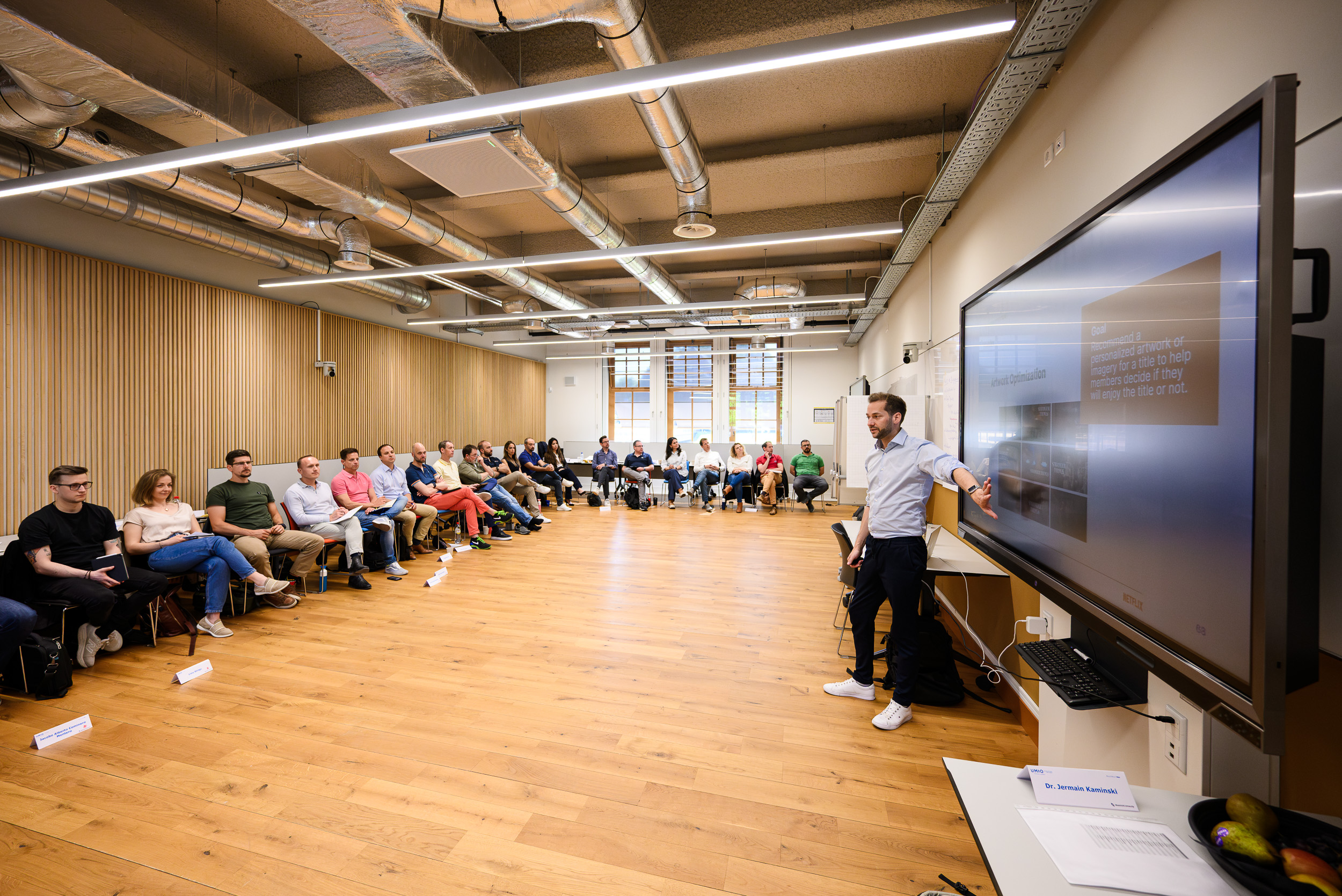Teaching

Courses
- Commercializing Science and Technology (INT1005) – Science and Engineering, Bachelor (9.6 / 10.0)
- Technology Entrepreneurship (EBC2144) – Cross-faculty, Bachelor (9.4 / 10.0)
- Digital Entrepreneurship (EBC4266) – Cross-faculty, Master (9.2 / 10.0)
- Entrepreneurship and New Business Development – MBA (5.0 / 5.0)
- Causal Machine Learning – PhD Workshop (University of Zurich / HEC, 2024–2025)
- Data Analytics in Practice (EBC4135) – Masters
Teaching Statement
You can know the name of a bird in all the languages of the world, but when you're finished, you'll know absolutely nothing whatever about the bird. So let's look at the bird and see what it's doing. That's what counts. – Richard P. Feynman
Curiosity is probably the most outstanding characteristic of modern and creative thinking I value. Therefore, I consider awakening curiosity and exploration as the core ingredient of good teaching. Universities should be centers of light and learning, with the task of professors to ignite enthusiasm and Gedankenexperiments. In here, teaching is the structured process of exploring the unknown, of encouraging freedom, and striving for truth. I firmly believe that the learning curve is the steepest when you explore a problem without an intuition of its solution. Similarly, when tackling a business problem, the search process can be driven through the scientific method and the approach of problem-oriented learning: It requires the exploration of examples and sources, observing and describing the phenomenon, the formulation of a hypothesis, the test of a hypothesis, and the formalization of actionable insights.
American economist Herbert A. Simon made one essential point regarding knowledge: "A wealth of information creates a poverty of attention". Therefore, I focus my teaching not only on quality content but also on reflection through my own, students', or other case studies. I enjoy to trigger the right questions, in order to enable viva voce learning, the staged debate. In this setting, the teacher is a knowledge source, but even more a sparrings partner that provides a room for students that allows for child-like enthusiasm and enables to develop their ideas, to challenge existing theories, and to ask the counterfactual. Altogether, this approach conveys scientific knowledge, while training methodological and problem-solving skills, promoting abilities to work in teams, and sensitizing for responsible action.
Consumer culture theory, particularly building on Markus Giesler's work on market system dynamics, enriches my entrepreneurship teaching in unique ways. I help students understand entrepreneurship not merely as business creation, but as a cultural phenomenon where entrepreneurs shape and are shaped by consumer meanings, myths, and ideologies. For instance, in my courses, we analyze how successful entrepreneurs don't just identify market gaps, but how they understand and sometimes reshape cultural narratives. This slightly sociocultural lens helps students move beyond traditional market analysis and Silicon Valley narratives to understand how entrepreneurial ventures become embedded in consumers' identity work.
My passion for teaching over the last 15 years has led me to being a lecturer to undergraduate and graduate classes with hundreds of students, as well as tailored MBA classes and doctoral workshops. I regard it as a privilege to help educate a diverse student body and equip them with the skills and knowledge to address their educational needs. In 2023, I obtained the University Teaching Qualification (UTQ), or Basiskwalificatie Onderwijs (BKO), at Maastricht University. In 2024, I was among the finalists for the university-wide Wynand Wijnen Education Prize at Maastricht University and in 2021 awarded the Best Teacher Award at the School of Business and Economics.